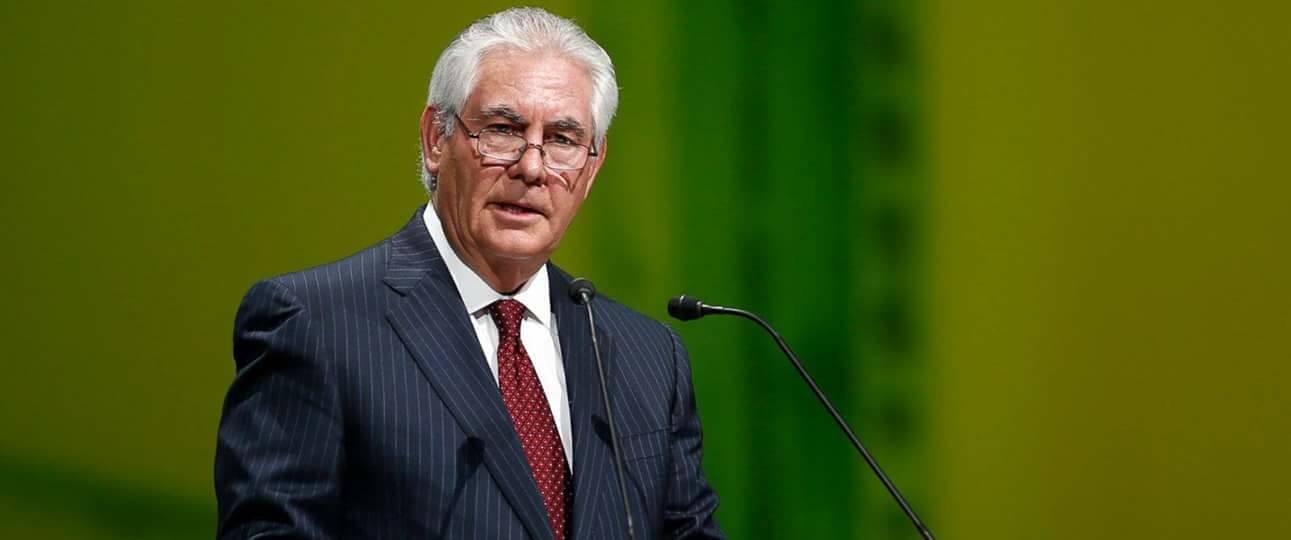News
US ban on travel North Korea kicks in, with few exceptions

The ban, announced by Secretary of State Rex Tillerson in July after the death of American student Otto Warmbier following his release from North Korea, makes U.S. passports invalid for travel to the North. (Photo: Rex Tillerson Secretary/Facebook)
WASHINGTON — A U.S. ban on Americans travelling to North Korea took effect Friday amid concerns about the fate of those who have been detained there in the past. The U.S. said its citizens can start applying for exceptions, but few will be granted.
The ban, announced by Secretary of State Rex Tillerson in July after the death of American student Otto Warmbier following his release from North Korea, makes U.S. passports invalid for travel to the North.
Americans who have a valid reason to travel to the North can still go under “extremely limited” circumstances, the State Department said, adding that applicants must prove their trip is in the U.S. national interest. Professional journalists assigned to collect information for public consumption about North Korea might be eligible, along with Red Cross representatives on officially sponsored missions. Humanitarian workers also could receive exemptions.
In new details released Friday about the exemption process, the State Department said applicants must email or mail a statement explaining why their trip serves the national interest, along with documentation to substantiate it. Applicants must also send a copy of their identification and contact information.
The State Department will notify applicants whether they’ve been deemed eligible or not. Those granted exceptions will receive a letter they can use to obtain a Special Validation Passport for a single trip to North Korea. For those denied, there is no appeal.
Under the law, Americans who violate the ban could face a fine and up to 10 years in prison for a first offence. The State Department has emphasized the possibility that those who violate the ban would have their passports revoked.
The ban comes amid heightened tensions over North Korea’s recent provocations, including unprecedented intercontinental ballistic missile tests and other launches. The Trump administration and Kim Jong Un’s government have been trading angry words and threats of military action, though tensions have calmed slightly in the past few weeks.
President Donald Trump spoke by phone Friday with South Korean President Moon Jae-In. The White House said they discussed ways to “strengthen South Korea’s defence capabilities,” including “planned purchases by South Korea of billions of dollars in American military equipment.”
Moon’s spokesman Park Su-hyun said Saturday that the leaders have agreed in principle that South Korea should be allowed to build more powerful missiles. South Korea’s missile developments are limited by a bilateral “guideline” between the allies and Seoul is seeking to increase the warhead limits on its maximum range missiles that could reach 800 kilometres (497 miles).





















